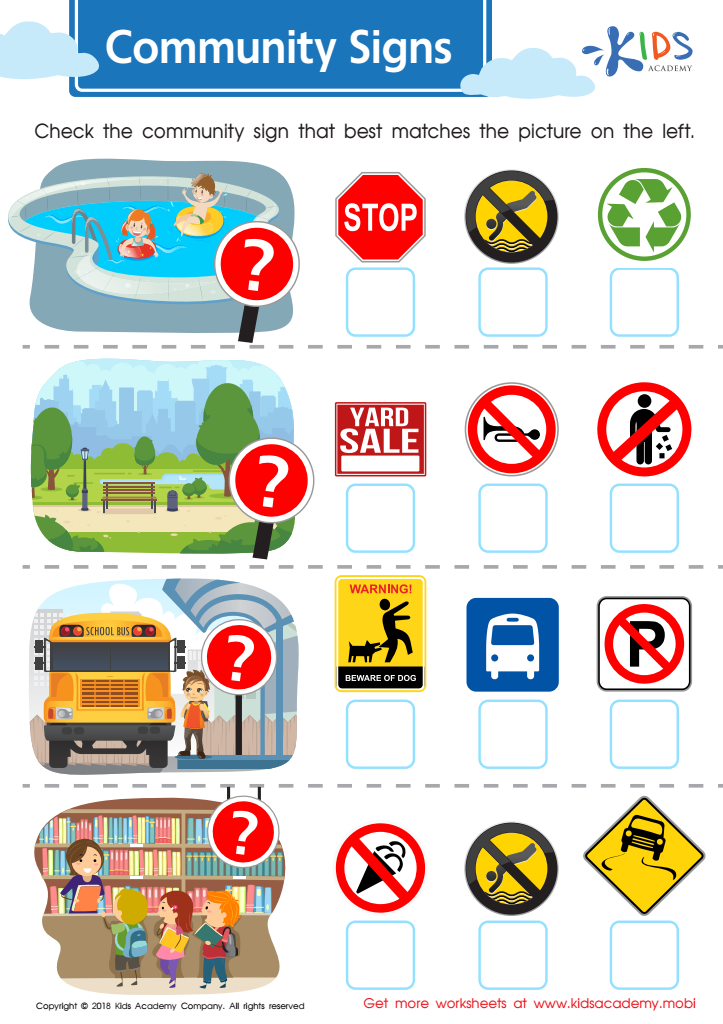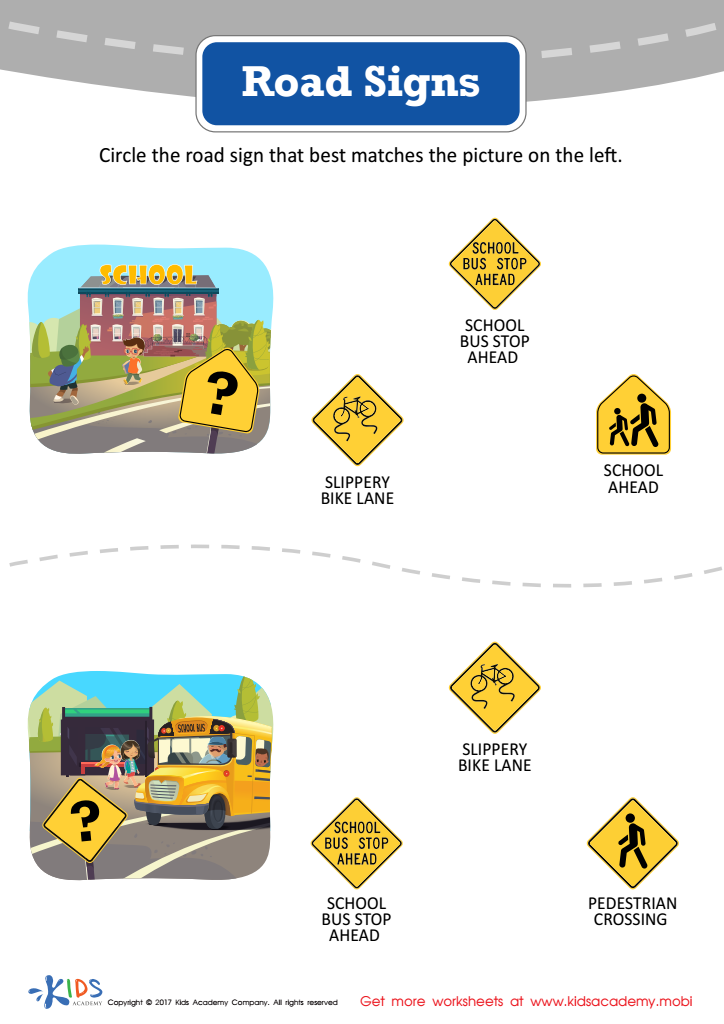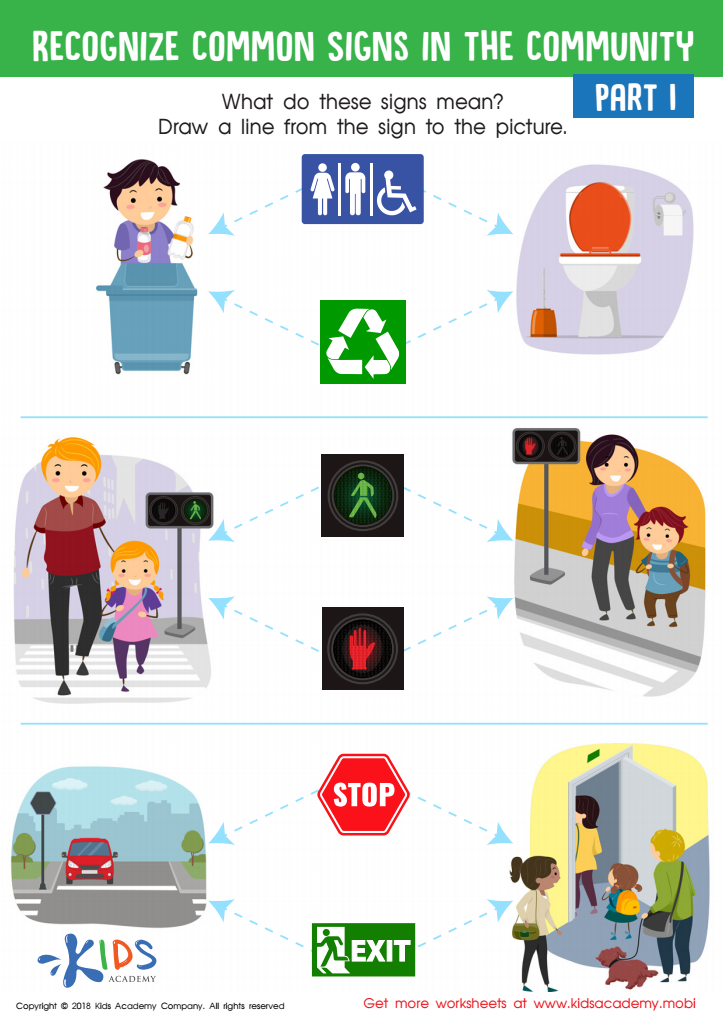Enhancing observation skills Community Worksheets for Ages 4-7
3 filtered results
-
From - To
Boost your child's observational skills with our engaging Community Worksheets for ages 4-7. These printable activities are designed to enhance young learners' abilities to notice details and interpret their surroundings. The worksheets cover various community-related topics, fostering critical thinking and social awareness. Perfect for classroom or home use, our expertly crafted exercises make learning fun and impactful. Your child will love discovering new aspects of their environment while building essential skills that stand the test of time. Visit Kids Academy to explore our full range of worksheets and give your child a head start in their educational journey!


Community Signs Worksheet


Road Signs (Part 1) Worksheet


Recognize Common Signs: Part 1 Worksheet
Enhancing observation skills in children aged 4-7 is crucial for fostering their cognitive development and laying the foundation for lifelong learning. At this young age, children are naturally curious and incredibly receptive to new information. Observation skills help them make sense of the world around them, leading to better understanding and retention of knowledge.
For parents and teachers, nurturing these skills translates into a multitude of benefits. Improved observation skills enhance critical thinking and problem-solving abilities. These skills allow children to notice details, recognize patterns, and make informed connections. This is vital for subjects like science and math, where understanding intricate details can lead to bigger discoveries.
Additionally, strong observation skills contribute to emotional and social development. As children become more attuned to their surroundings, they pick up on social cues and emotions more adeptly, fostering empathy and better interpersonal relationships. In a community of young learners, this skill promotes cooperation, effective communication, and a supportive learning environment.
Overall, prioritizing the enhancement of observation skills between ages 4 and 7 sets children up for academic success and effective social interaction. By focusing on these skills, parents and teachers invest in developing well-rounded individuals who can navigate complex environments with confidence and insight.
 Assign to My Students
Assign to My Students
















